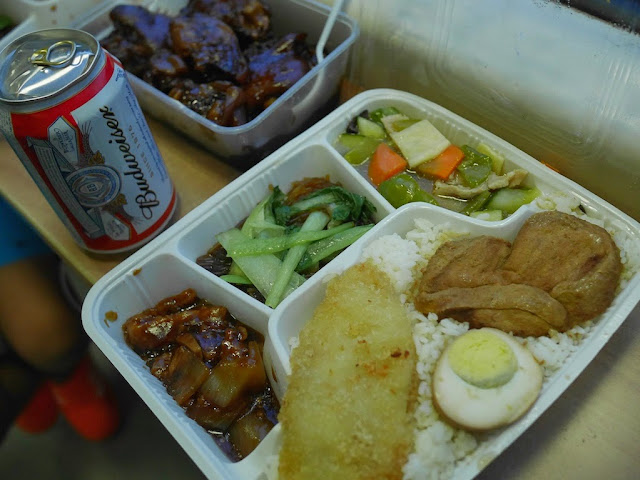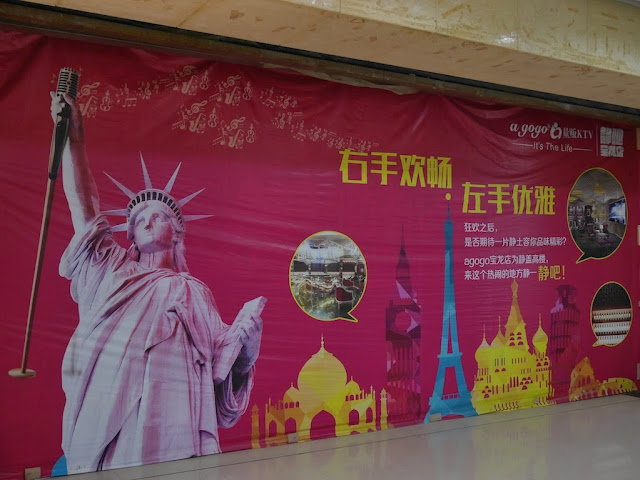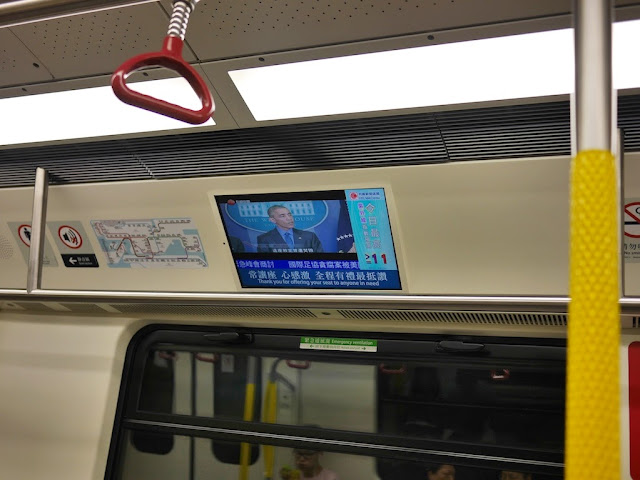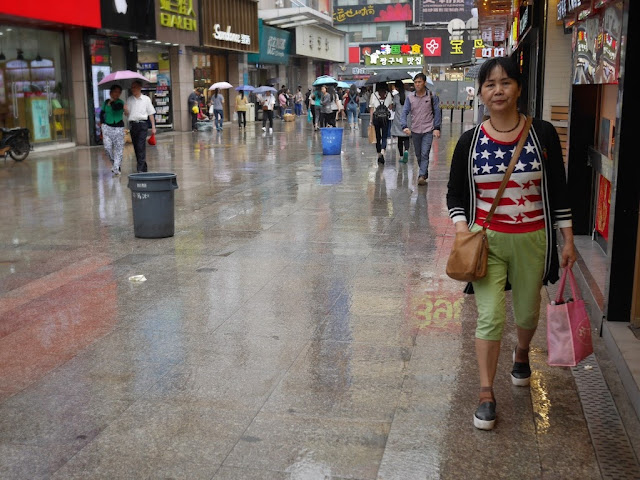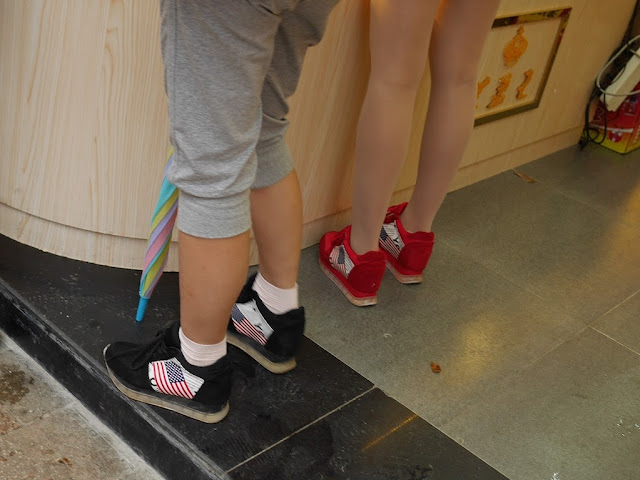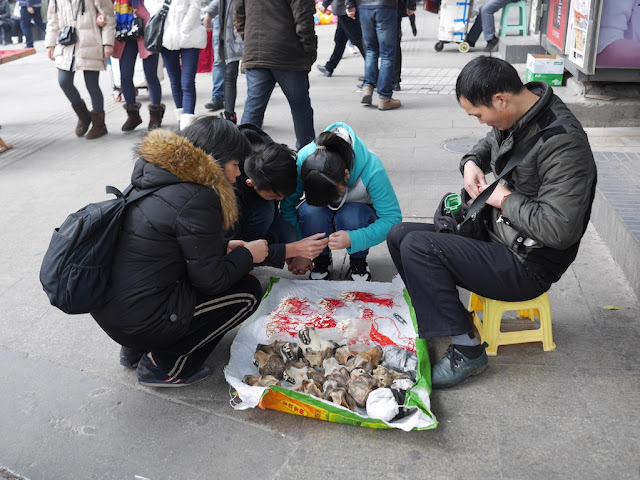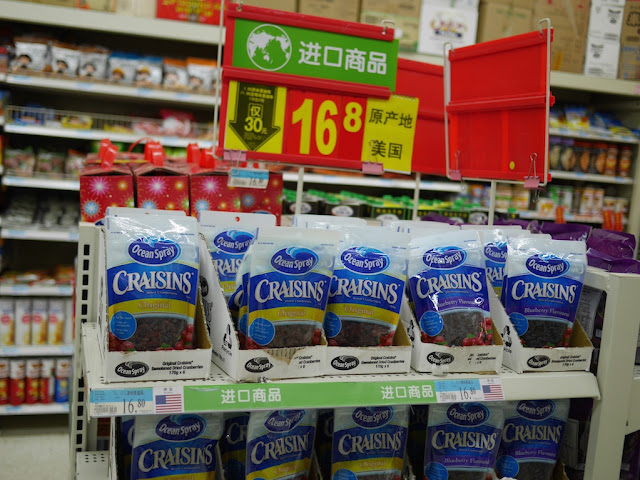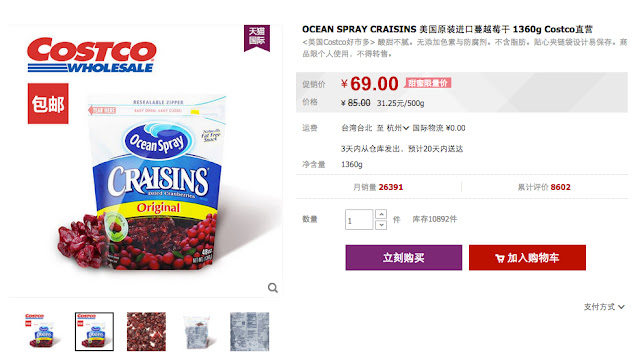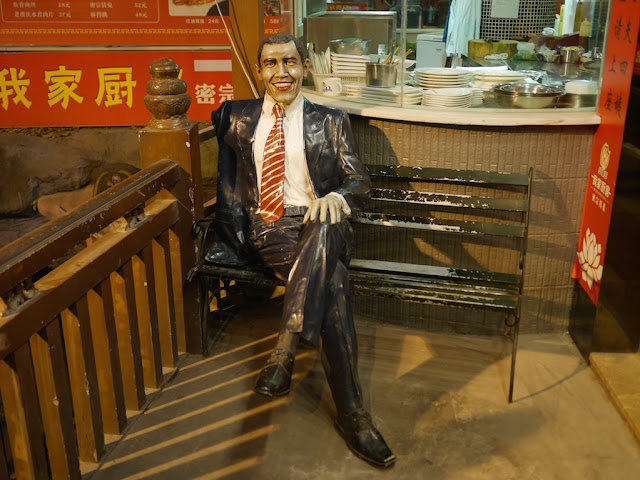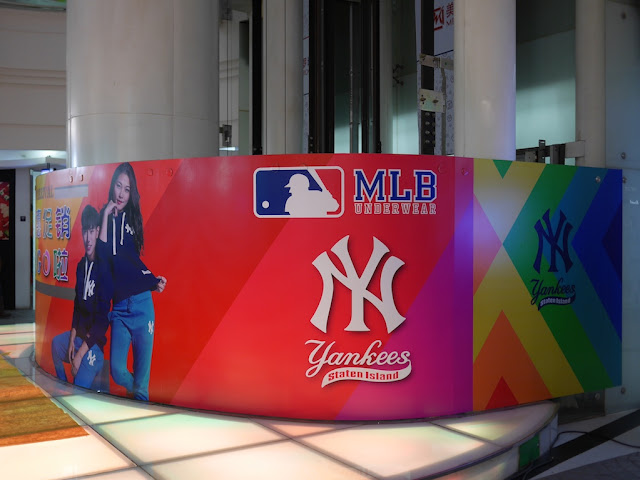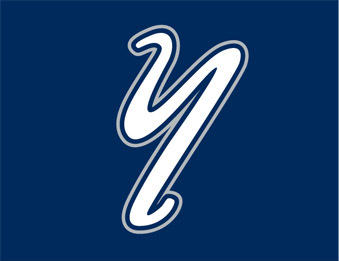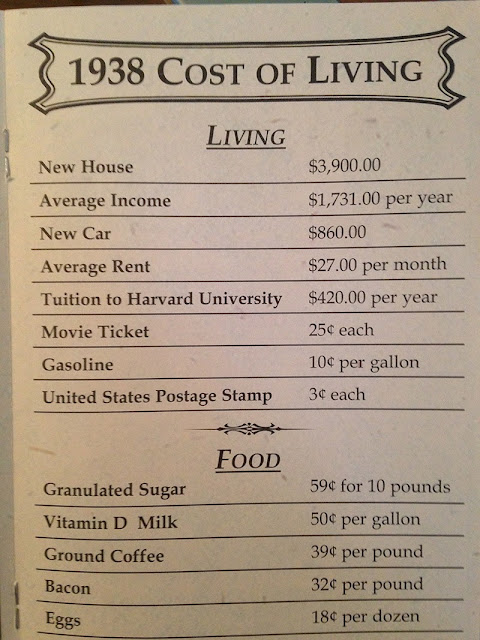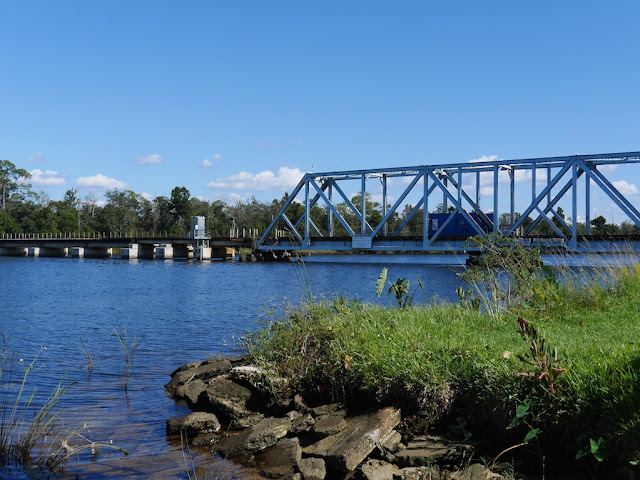 |
| A small portion of the vast Zhuhai Port Plaza |
Hundreds of stalls in the underground Zhuhai Port Plaza shopping center in front of the Gongbei Port immigration checkpoint in Zhuhai, China, sell a wide variety of clothing. Yesterday I saw an unexpected item there which reminded me of where I last lived in the U.S. — Baltimore, Maryland.
 |
| Assorted underwear and sleepwear for sale |
A young saleswoman said the boxer shorts with the logo of the Baltimore Ravens, a National Football League team, cost 25 RMB (about U.S. $3.90). Although bargaining would likely lead to a lower price, the shorts are already much cheaper than any similar items for sale on the Baltimore Ravens official online store. Obvious imitation products are plentiful at many shops in the market, so it is easy to believe these boxer shorts aren't entirely legitimate.
In regards to counterfeit Baltimore Ravens merchandise coming from China, a few years ago the Baltimore Sun quoted the NFL's vice president of legal affairs as saying "If you're buying merchandise from a China-based website, you're probably not getting the real thing". But the claim doesn't appear to be as true anymore, since the NFL now has a store on Alibaba's Tmall.com which is referenced on the the NFL's website for China.
 |
| NFL store on Tmall |
A Ravens hat currently sells there at nearly a 50% discount for 158 RMB (about U.S. $24.80), not very different from the same hat's current discounted price of $22.99 on the NFL's U.S. online store.
 |
| New Era Baltimore Ravens Training 39THIRTY Flex Hat for sale on Tmall |
The Ravens page at the NFL Tmall store doesn't list any other items. The store offers five items with the logos of the Ravens' biggest rival, the Pittsburgh Steelers, though.
 |
| Items for sale on the Pittsburgh Steelers page at the NFL Tmall store |
At least the Ravens can take heart in the fact I didn't see boxer shorts for any other NFL teams at the shop in Zhuhai.
But the Ravens and the NFL shouldn't look at the shorts themselves as necessarily a sign of growing popularity in China. It is not uncommon for people in China to wear clothing with logos more familiar elsewhere simply for their look without concern for their full meaning. Although there are indications the NFL's relatively small fanbase is growing in China, I very rarely meet anyone familiar with it, sharply contrasting with widespread recognition of the NBA. Likely similar to most people in China, the saleswoman didn't know the meaning of the logo. Nor she she seem to care in the least when I informed her of its connection to an NFL team in the U.S. Nonetheless, if the Baltimore Ravens later notice a fan base unexpectedly growing in Zhuhai, these shorts may be where it all began.


